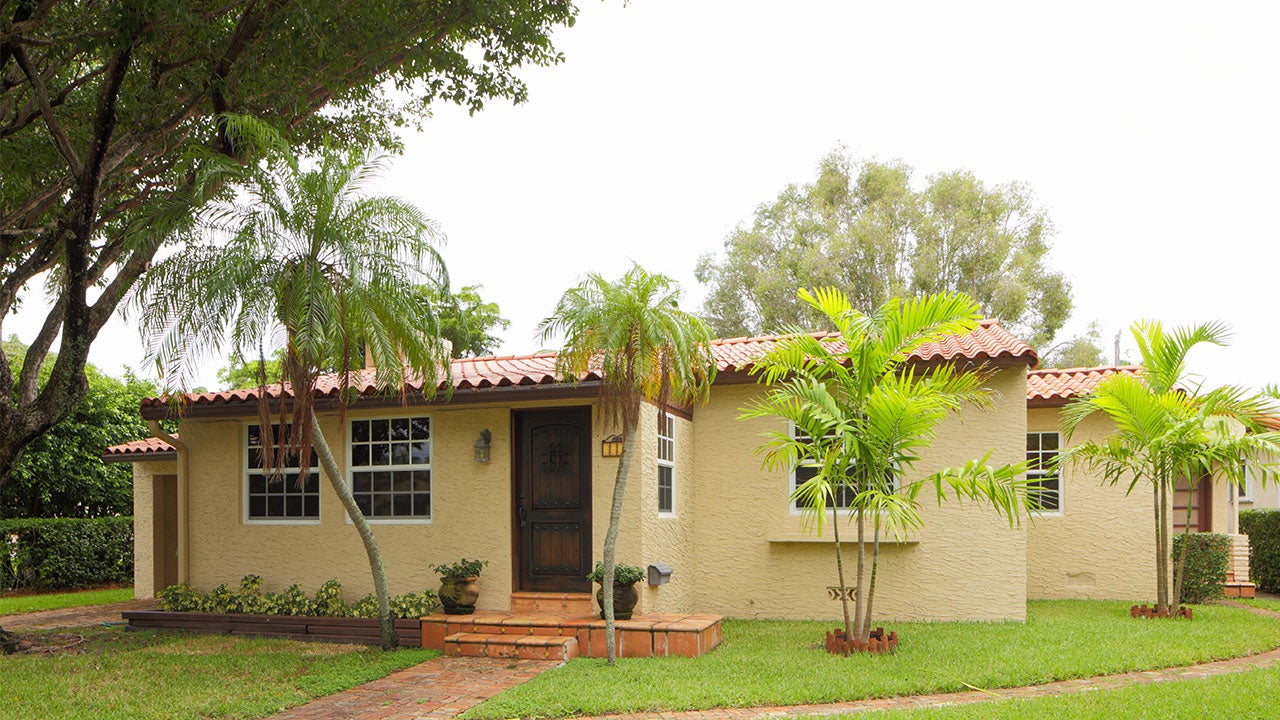Is political gridlock hurting Florida homeowners?

Florida’s homeowners insurance market has been in crisis for years. Premiums are among the highest in the nation — more than double the national average — and insurance reform is a constant balancing act between consumer protection and market sustainability. However, this year, Florida homeowners face more than high rates and hurricanes. Political gridlock has brought Florida’s 2025 legislative session to a standstill days before the official start of hurricane season, halting key insurance reforms.
Florida’s budget delay comes down to a standoff between the House and Senate over tax cuts. The House wants a broad sales tax reduction to reduce the state’s general sales tax rate from 6 percent to 5.25 percent. The Senate favors a more targeted approach, such as eliminating sales tax on clothing priced below $75. Governor Ron DeSantis isn’t sold on either plan, and instead is pushing for property tax cuts. With no agreement in sight, lawmakers extended the session to June 6, with the possibility of an extension until June 30. This has caused major issues, like homeowners insurance reform, to be in limbo or disappear altogether.
With Floridians juggling high home insurance costs along with economic uncertainty, finding extra funds to put towards storm-resistant upgrades could be a struggle. One bill, SB 1468, proposed a sales and use tax exemption for extreme weather-mitigation products.
To make the upfront costs of extreme weather mitigation more affordable, a tax exemption would be available for impact-resistant doors, windows and other products that meet certain standards and are purchased in February, before hurricane season. This bill was indefinitely postponed and withdrawn from consideration.
Key homeowners insurance bills on hold or withdrawn
The Florida homeowners market has been plagued for over three decades with issues stemming from failing insurers, claim denials and rate hikes — all of which caused many homeowners to lose trust in insurance companies. As recently as February 2025, a report commissioned by the Florida Office of Insurance Regulation (OIR) in 2022 surfaced, implying insurance carriers filed for massive rate hikes while their managing general agents or MGAs (a type of insurance broker that acts on behalf of an insurance company) earned billions.
According to Mark Friedlander, senior director of media relations for the Insurance Information Institute, the incomplete report didn’t accurately reflect the situation.
The 2017-2019 report being investigated was an incomplete draft and very misleading. It only included partial financial data for how managing general agents and affiliates were compensated during this period – revenues earned but not expenses incurred. It was written by a consultant who apparently has no knowledge of insurer operations.
— Mark Friedlander Senior Director, Media Relations, Insurance Information Institute
Due to this report, many bills were drafted this session with transparency for homeowners in mind:
Would prohibit executives who were officers or directors of an insolvent insurance company from taking jobs with another carrier in Florida.
Would require carriers to provide a rate transparency report detailing why they are filing for an increase and where premiums are being allocated.
Requires the OIR to report the salaries of top executives at insurance companies and provide policyholders with a written estimate of company profits or losses.
All of these bills have been indefinitely postponed and withdrawn from consideration.
Once a session ends, any unresolved policy bills die, no matter how far along they are. They can’t just pick up where they left off, it has to be redrafted and start again next session. The only bills still alive are the bills the Chamber has agreed on in the extension.— Spencer Roach, former Republican member of the Florida House of Representatives
Only 16 bills are up for consideration during the extension, none of which involve home insurance reform.
What inter-party turmoil means for Florida homeowners
The ultimate goal of insurance reform in Florida is to make homeowners insurance readily available and more affordable. For example, Senate Bill 2-A was signed into law on December 16, 2022. This law eliminated one-way attorney fees in home insurance lawsuits, which many blame for Florida’s rampant legal system abuse. Under the one-way attorney fee system, insurers were required to pay for a policyholder’s legal fees if the carrier lost in court.
Now, homeowners must pay for their own court fees. This reduces the number of lawsuits in the state, which in turn may help lower rates and bring more carriers into the state. But, it also means that many homeowners who have legitimate cases against their carrier cannot afford to have their day in court.
On paper, many of these reforms enacted between 2022 and 2024 seem to be working. As of April 2025, 12 new home insurance companies have entered the Florida market, giving homeowners more options. Citizens, Florida’s carrier of last resort, has moved over 378,000 policies back into the public market over the past year. The depopulation of Citizens is a crucial step that may help revitalize the private insurance sector and is needed to reduce the strain on the state’s financial resources.
However, whether the sweeping reforms enacted from 2022 to 2024 are effective remains a topic of debate among many homeowners, even those familiar with the insurance industry, according to Jonathan Wilson, a Florida homeowner and public claims adjuster.
My premium has jumped over 50 percent since tort reform, while my dwelling coverage only increased 39 percent. That kind of coverage bump doesn’t justify such a steep rate hike, especially when the real value of coverage has gone down due to things like matching limitations and stripped litigation rights. I'm paying more, for less.— Jonathan Wilson, Florida resident and President, Intellaclaim
Many Floridians are still waiting for the promise of affordability to make its way to their wallets. As of May 2025, Florida homeowners pay $5,409 per year on average for $300,000 in dwelling coverage according to Bankrate’s analysis, which is 132 percent more than the national average of $2,329. While rates have stabilized over the last two years, Florida has the second-highest average home insurance rates in the country. And the highest by far when compared to other states prone to hurricane loss.
Roach pointed out another dilemma that may have flown under the radar of legislators, but not homeowners. Constitutionally, a Florida legislative session lasts for 60 days, and this year should have ended at the beginning of May. This unprecedented situation pushes the session out to at least 95 days and well into hurricane season. Meaning, some homeowners are already feeling the financial repercussions of the chaos in Tallahassee.
“Each session lawmakers agree on a hurricane tax holiday,” says Roach. “That bill didn’t happen this year. The fact that Floridians won’t get financial relief this year is a direct result of the legislative stalemate. These delays don’t just affect policy, they have real consequences for homeowners who are trying to prepare for storm season.”
Bottom line
Reforming Florida’s insurance market is a long game, one that requires persistence, compromise and time to yield results. But every delay chips away at public confidence. Sometimes, even the appearance of inaction sends the wrong signals to the very people they’re trying to protect.
“The delay sends a clear message,” says Wilson. “Political priorities come before people’s financial survival. Hurricane season is June 1, and homeowners are stuck with record-high premiums, shrinking coverage, and no real consumer protections. Kicking the can down the road doesn’t make the crisis disappear, it just makes the damage harder to undo.”
At the time of publication, the Florida House extended the 2025 Regular Legislative session to June 30, but the Senate hasn’t agreed to anything past the original June 2 extension. But the clock is ticking. If lawmakers fail to reach a budget agreement before July 1, Florida could potentially encounter its first government shutdown, occurring during an above-average hurricane season with predictions of three to five hurricanes reaching major hurricane status.
Why we ask for feedback Your feedback helps us improve our content and services. It takes less than a minute to complete.
Your responses are anonymous and will only be used for improving our website.






